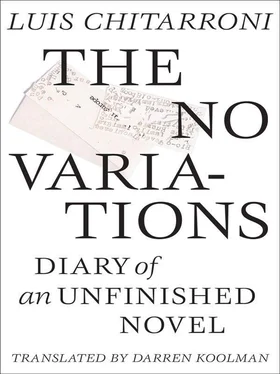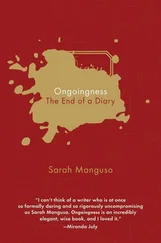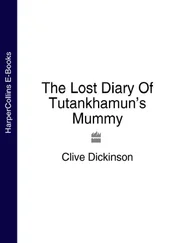The Myope’s Nightlife
In compensation for his lack of vigilance, the Myope’s nightlife should be exclusively oneiric. We grant that nightmares are members of that genus, but we must frequently remind ourselves that this is the case.
Discard Tecumseh and the imitation of James since the publication of Lodge and Tóibín books. Horrible incursion of reality when trying to write and organize a novel. O therapy.
Post Scriptum 2004 (summary)
NO to “Occupation” after Lodge and Tóibín. Penalty for taking so long. No to the title, too many people dislike it. They believe the word games are taken exclusively from titles published by Página / 12 . I don’t like giving or receiving orders, but I’m no bastion of common sense, so I’ll acquiesce. Look for other titles then. No to “The Cult of St. Mawr,” which I wrote more quickly because I attributed it to the fake author, Eduardo Manjares, in an anthology of stories about London. No to the Tecumseh because there’s already a series of books by Rex Stout (which I haven’t read) with a protagonist called Tecumseh Fox. Change “The Old Bachelor” to “The Referent.” Exclude prologue and epistolary. Try telling the contextual story — the history of Agraphia —another way. Agraphia or Alusiva ?
Great shipwreck.
Look for a sequence.
List of edits based on lexical and syntactical habits of Eiralis, who, as news spreads about him throughout Agraphia / Alusiva , will be known as the most exacting, the most forceful of redactors.
64 interventions / fragments in total. 41 before the anthology, 23 after.
41 fragments
8 stories Early / The Soup / The Bachelor / St. Mawr / The Visit / Semblance / Replicas / Xochimilco
23 fragments
Or no: 32 and 32 ( Goldberg Variations ) If the general title was “News from Agraphia,” replace News with Crossings
Departure and return
Preparations
1 Precisions
2 News
3 Ceremonies
4 Issues
5 Concealments
6 Emphasis
7 Farewells
8 Repetitions
Pushkiniana suite dispersa
(scan and recite aloud)
It wasn’t good to know or to discover
(or to deceive ourselves into believing)
that yesterday’s most notable act
happened in our infancy (which I now evoke):
the Kirkcaldy tinkers kidnapped
Adam Smith, Adam Smith, Adam Smith
(a name that resonates with the dessert, Balcarce) .
The Kirkcaldy tinkers (cry, little boy, cry)
(whose only currency were golden ballads
hid in romanes scrips) kidnapped him. In those
hours stiff
from seizure and delay
you will have experienced, dear beagle ,
beloved storyteller
working fulltime
(not a moment of which you spend
fretting over the prodigal Icarus)
A ventriloqual distaste
(yours and/or mine)
for that source
Of wealth
That falls from the master’s table *:
a scattering of syllables (yours and/or mine) .
It is a virtuous economy, so to speak .
* (Avaricious Scotsmen ,
Oídos sordos; far-off militiamen ,
sóngoro cosongo)
1 news
2 emphasis / anecdotes
3 liturgies
4 concealments / calumnies
5 precisions
6 issues / lots
7 preparations
8 farewells / positions
1 news
2 preparations
3 precisions
4 issues
5 emphasis
6 concealments
7 liturgies
8 farewells
1 precisions
farewells
2 emphasis
preparations
3 liturgies
calumnies
4 concealments
issues
5 issues
concealments
6 calumnies
liturgies
7 preparations
emphasis
8 farewells
precisions
sestina sequence [[x6]] reproduce scheme and simplify
precisions
emphasis
liturgies
concealments
issues
calumnies
early
specular soup
semblance
replicas
xochimilco
thunbergias
Sestina takes round trips between fictional and factual references to Agraphia
6 x 8 48 NO 6 x 9 54. 54 parts of six chapters each
Books from which the fragments that appear under the title “News from Agraphia / Alusiva ” are taken
Hilarión Curtis: Bannerless Days, The Two Nations
Nicasio Urlihrt: A Nightcap with Death, The X-Positions , work in progress, far from complete
Elena Siesta: Final Drafts, The Place of Apparitions, Unedited Letters, Dead Aunt’s Diary
Oliverio Lester: Unimportant Details, Plan for a Plagiarism, Plan for a Preface
Felipe Luini: Diary of the Surrounding Area
Federico Prosan: Out of a Greek Gift, Mexican Journal
César Quaglia: Reflections from Afar, on the Effects of Distance
Emilio Duluoz: The Office Next Door
Eduardo Javier Manjares: Postcard from the Inquisitor, Burdensome Book, Maghrebi Agenda
Zi Benno: The Epsilom
Lalo Sabatani: The Mass in Tongues
Cristóbal Niaras: Agraphia: A Chance Laboratory
Eloy Armesto: Zero Vowel, A Round Number
Remo Scacchi: Age
Delfín Heredia: Touched by Evil Days (A Fictional Biography of Doctor Yturri Ipuche)
The Sycophant’s Soliloquy
Lord Swindon: A Bachelor in Bedlam
Adam Pause
Make sure the titles accord with the kinds of events narrated. Insert the fragment of St. Mawr which corresponds to the initiation ceremony.
32
36
32
100
I adore italics, don’t you? A. R. Firbank
“News from Agraphia / Alusiva ”
#1 PRECISIONS
1.
Agraphia / Alusiva , a journal founded by Nicasio Urlihrt [(Emilio Teischer)] and his wife, Amanda Corelli Estrugamou [(Elena Siesta)], intended to be entirely anonymous. It was to publish only the best literature, at least according to the couple’s criteria. Their taste for pseudonyms, a legitimate reflection of their era’s zeitgeist (and the cause of wildfire gossip once word got out), yields to serious critical scrutiny today. The contributors were known for — or ignored thanks to — the heresy they’d committed, and of which they took every opportunity to boast, even calling themselves “the writers without stories.” They went around publishing books espousing the theory that it’s better to simply write stories than to write about the writing of stories, and to illustrate this, they simply wrote stories. Few readers remember those stories today, but many recall the anecdotes associated with [relating to?] them. [Such that] Forgetting is not so serious an affront as long as we remember what it is we’ve forgotten. If it were [it was?] ever to become necessary to exonerate [the coterie, the conspirators], Nurlihrt would just publish a series of [unsigned] editorials to adduce a controversial synthesis of two seemingly incompatible theses, and at the same time, [to] proclaim that generation and corruption are one and the same. From the middle of the last century to the beginning of this, Agraphia / Alusiva was the evangelizing force behind this and many other naïve generalizations.
Oliverio Lester, Plan for a Preface / / [without assistance] for a Plagiarism, draft agreement
2.
Four days after the crime, Lalo arrived at the office on Basavilbaso Street, where Elena and Nicasio were waiting for him. He told them he’d spent the last four days not knowing what to do. On Tuesday, he shaved, called Elena and Nicasio from a public phone, and had a chance meeting with Belisario on the street. An hour later, he was at Elena and Nicasio’s place. What else could he do? Elena went to the kitchen to get some scones. Lalo said he had an argument with Spiro the previous Thursday. Spiro left, slamming the door behind him, but then came back the next day acting as if nothing had happened. They got into bed, spending some time in silence, looking out the window, watching the lights of a neighbor’s Christmas tree flashing intermittently. Eventually, said Lalo to the couple, Spiro got up to retrieve a pack of cigarettes but, when he returned, he had a knife in his hands. He exhibited, saying it was a trophy he stole from his brother’s house, although it was a house they both shared. But you’re not interested in knives, said Lalo to Spiro, you’ve never been interested in them, so why the hell are you showing off something you’re not interested in? Apparently it belonged to his father. Lalo went to the chair to heap his clothes and retrieve a cutthroat razor. Spiro said that that too once belonged to his father. He’d decided to bring these objects to Lalo’s house where they might prove more useful than in the house he shares with his brother. Lalo said — gesturing politely to refuse Elena’s offer of a scone — that he later learned Spiro was never quite right in the head, but that between the time he left and the time he came back, he seemed to have lost yet another marble. The whole time Lalo was speaking, Nicasio scrutinized him with a look of disgust, although he’d later say, in more distinguished company, that “Lalo never ceased to disgust me.”
Читать дальше












